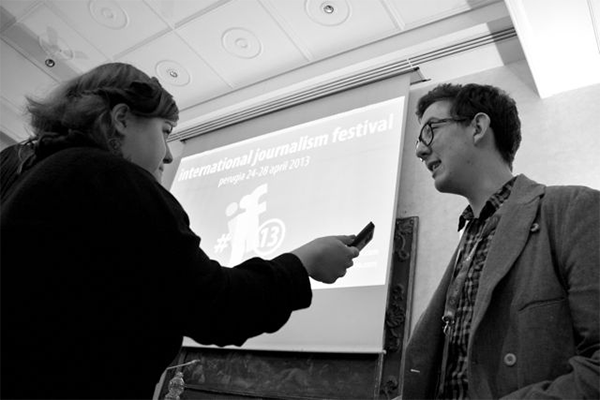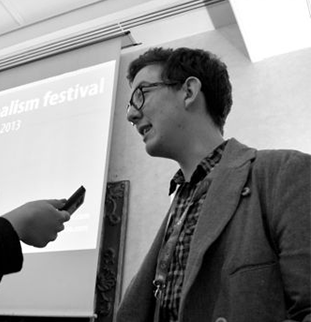 photo by Danila D’Amico
photo by Danila D’Amico
The Guardian journalist has worked on some of the biggest stories of the last few years, including leaks from Edward Snowden and Julian Assange’s WikiLeaks. He talked about the implications of the revelations and what they suggest about our societies.
“The US likes to think of itself as this beacon of freedom and democracy, and it is a lot better than other countries. But the problem is, if you value privacy and the rule of law, if you torture prisoners and spy, you are not living up to that value.”
How has your life changed since the NSA work you did?
“Well I moved to America, we had to move all of our reporting there so that’s a fairly big change. I get more hassle at airports than I used to. But the importance of the change I think is that we know a lot more about what we need to do to and how far we need to go to protect our sources – how far we have to go to keep that information secure. That’s an important thing for all of our journalism. We’ve learnt a lot more about how to do that better.”
Do you find that now sources are more cautious when speaking to you? Or has it become easier – do they feel safer because you do have these tools?
“It’s hard to tell. I think for a lot of people who do national security reporting every day it is a lot harder because there’s been a crackdown on being allowed to talk to journalists. I think the authorities’ response is quite bad. I think potential sources should feel more confident than ever talking to journalists, because we’ve all learnt more about how to do it well. Even though there’s been a lot more reporting about the risks and so on, those risks were there before, it’s just we know about them now so we can do something about it.”
What do you predict will happen to journalism in the next year?
More explanation: we’re seeing a lot of new start-ups – there’s some energy coming back into it. I think we will see bigger sites take the lessons of some of these new start-ups: the good bits of BuzzFeed and the good bits of Vox. I think we’ll see more secure Dropboxes, more journalists showing off their PGP keys. I think more explanation and better security, both of which I think are good for us.
Do recent stories – for instance The Guardian obtaining footage of police tasering a naked man in prison – owe something to stories such as the extent of NSA surveillance?
“I don’t know. I think things like that, The Guardian has been doing for a long time. Paul Lewis’ brilliant reporting after he got the Ian Tomlinson video says a lot about how these things work. That was a kind of regular citizen who took it on his phone and only thought to send it to someone days later. I think that kind of conversation, with journalists taking it seriously, has a lot more to do with that kind of stuff than the generational scoops kind of stuff.”
During the discussion “Thanks Mr Snowden! The Scoop of the Century,” Ball discussed the importance of privacy. “Our freedom of expression relies on our privacy,” he said, “all of our data is online. There’s no such thing as digital rights: online rights are offline rights.”
He also discussed the unusual steps The Guardian took to publish their award-winning work. “We had to do what a lot of UK news outlets wouldn’t – we worked with our rivals. That really speaks to Alan Rusbridger and Janine Gibson – they put the story before their paper.”
“I have learnt so much this last year – so have lots of people at The Guardian and elsewhere. We’re always going to be the little guy taking on organisations a lot more powerful than us.”


